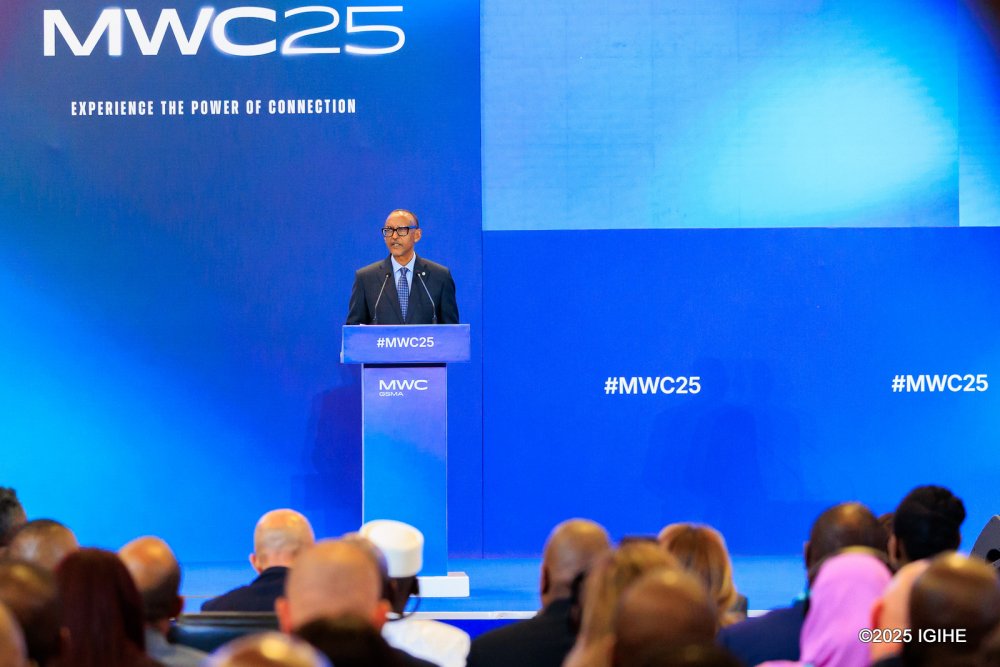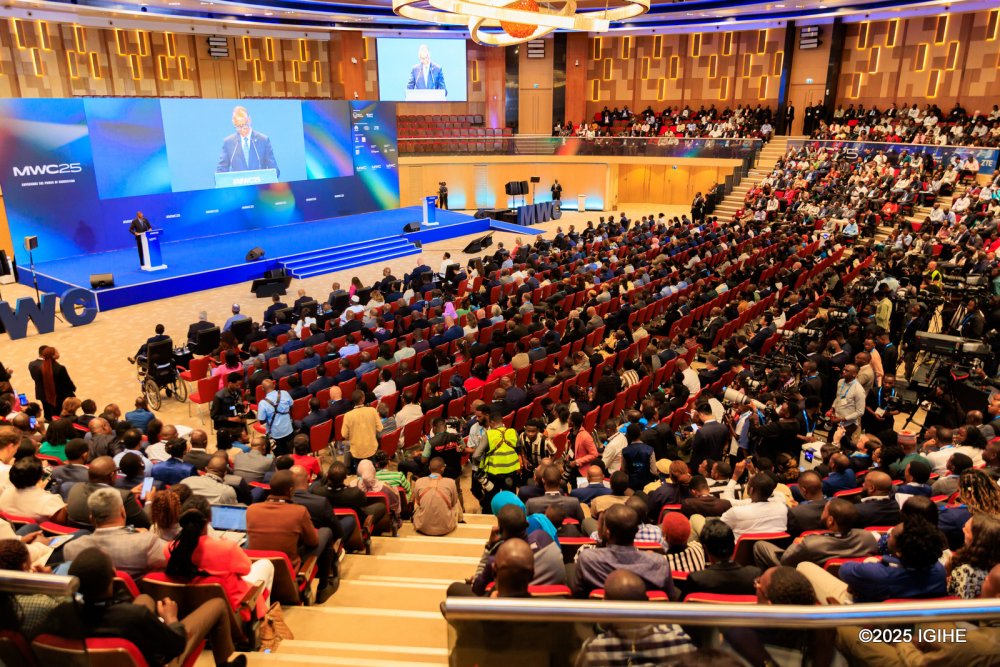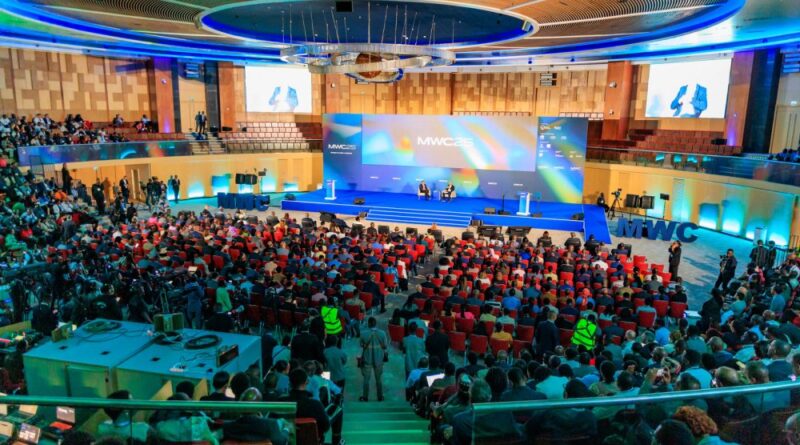Over five million Rwandans now have access to 4G internet
The Minister of ICT and Innovation, Paula Ingabire, said it was an honor for Rwanda to host the MWC Kigali event, recalling that when Rwanda first hosted this conference in 2022, it was the first time GSMA had ever organized a summit in Africa.
Minister Ingabire noted that in 2023, Rwanda had around 500,000 users of 4G internet. However, through strong partnerships and a national strategy to expand high-speed internet access, that number increased tenfold by June 2025, reaching five million users today.
She stated, “In this context, MTN Rwanda has launched its 5G network, and the Government of Rwanda has secured internet capacity of 60 gigabytes to ensure that every household, school, and hospital can access high-speed internet.”
Minister Ingabire emphasized that Rwanda is committed to ensuring modern internet access for every citizen, leaving no one behind.
She highlighted that currently, about 1,000 health centers and 4,000 schools have been connected to high-speed internet. Through the Digital Ambassadors Program, more than 4.5 million Rwandans have been trained in basic digital literacy.
She added that through a nationwide “Coding for All” initiative that has trained over a million people, Rwanda is building a generation of innovators ready to contribute to Africa’s digital future.
“As we open this conference, our message is simple,” she said. “The future of mobile technology in Africa will be driven by collaboration. We must connect industries, governments, innovators, and markets creating African-made solutions with global reach. Rwanda’s story shows that when vision and partnership align, progress follows.”
The Director General of GSMA, Vivek Badrinath, thanked President Kagame for Rwanda’s continued support and for hosting the event.
He remarked, “Over the past years, Rwanda has emerged as a leader in digital transformation across Africa. The country showcases how technology can drive social and economic change. At the core of this success is the leadership and vision of President Kagame, coupled with the power of mobile connectivity.”
Badrinath added that in the last two decades, ICT-driven initiatives have been a key engine of Rwanda’s economic growth.
He further noted that mobile phones have made a remarkable impact across various sectors, including education, healthcare, financial services, business, and innovation.
“Today, mobile operators cover about 99% of Rwanda’s population,” he said. “However, there is still more to be done to ensure that everyone enjoys affordable mobile internet access but I am confident that the Rwandan Government remains committed to this goal.”
Rwanda has made significant progress in mobile phone penetration, with about 85% of households owning at least one type of mobile phone.
According to the National Bank of Rwanda (BNR), the use of mobile payments surged in the fiscal year 2023/2024,with the number of mobile transactions rising by 75%, from 240.5 million to 419.7 million.
Meanwhile, the value of payments made via mobile platforms increased by 43%, from 1,575 billion Rwandan francs the previous year to 2,252 billion Rwandan francs.



